Ker & Downey Africa > Journal > Fireside Chats with Ben Saunders
“I’m motivated by the exploration and fulfilment of my own potential, and by the opportunities I have to inspire and encourage others to make the most of their time on this planet.”
– Ben Saunders
Ben Saunders is a record-breaking polar explorer, endurance athlete, motivational speaker, and advocate for future pioneers. He has spent two decades leading polar expeditions and is one of three people in history to ski solo to both the North and South poles. In 2014, Ben, together with Tarka L’Herpiniere set the world record for the longest human-powered polar journey in history by completing a 1,795 mile (2,888km) trek to the South Pole and back, in the footsteps of Captain Scott’s last journey. This round trip from Ross Island on the coast of Antarctica to the South Pole and back again saw the duo hauling 200kg sledges each on foot for 69 back-to-back marathons in temperatures as low as -46°C for 108 days straight.
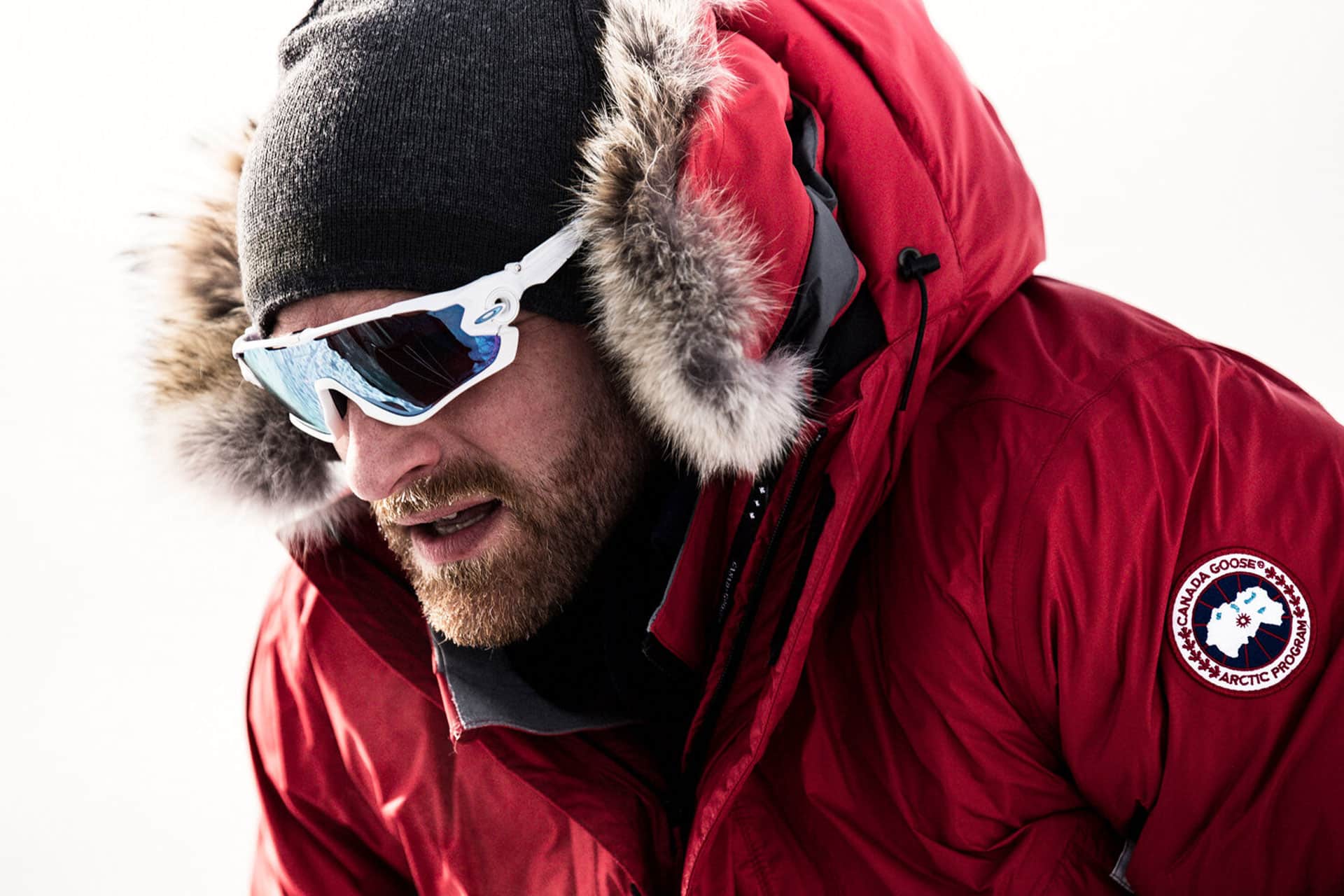
Having covered more than 4,500 miles (7,242km) on foot in the polar regions, he has witnessed first-hand the devastating effects humans are having on the planet and is determined to do something about it. He is driven by a desire to educate as well as inspire and enable others to live more adventurously and to make the most of the 650,000 hours or so that we each get on this planet.
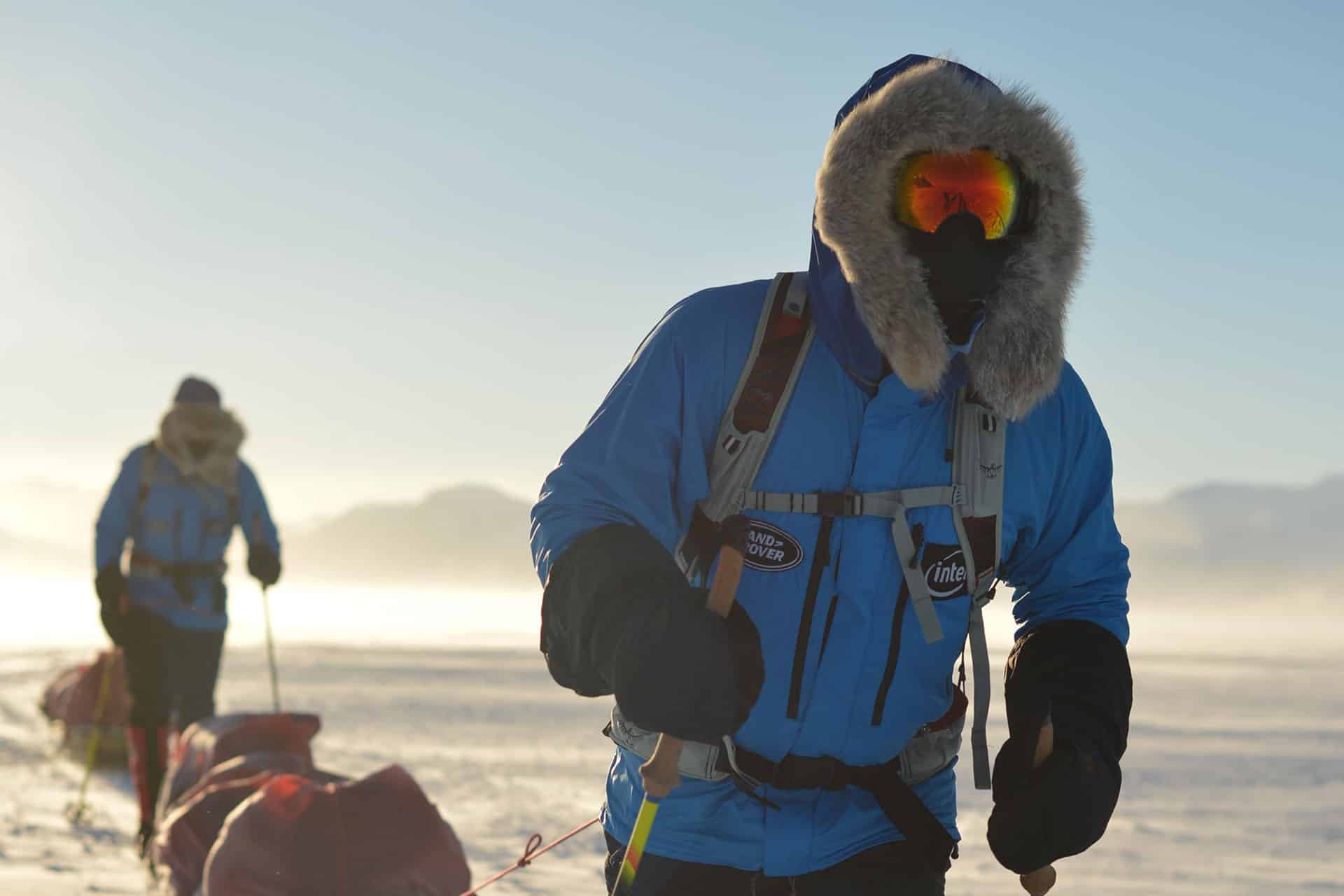
Ben is a global brand ambassador for Land Rover and Canada Goose, as well as an acclaimed keynote speaker described by TED (where he has spoken three times, with his talks receiving more than five million views) as ‘a master storyteller’.
He also supports a number of amazing charities, and is an entrepreneur, writer, cyclist, runner, weightlifter, dog-lover and husband.
Ben thawed his polar bones around the fire and joined us for a chat:
Like many people, I’m mostly at my desk at home these days, and spending more time than I’d like in front of a screen! I’ve just started traveling for speaking engagements again (Lisbon and Mallorca so far, and typing this on a long flight to give a keynote in Las Vegas) which is a joy after so much time on Zoom, although to many peoples’ surprise I’ve actually enjoyed 18 months mostly at home, with no long-haul travel.
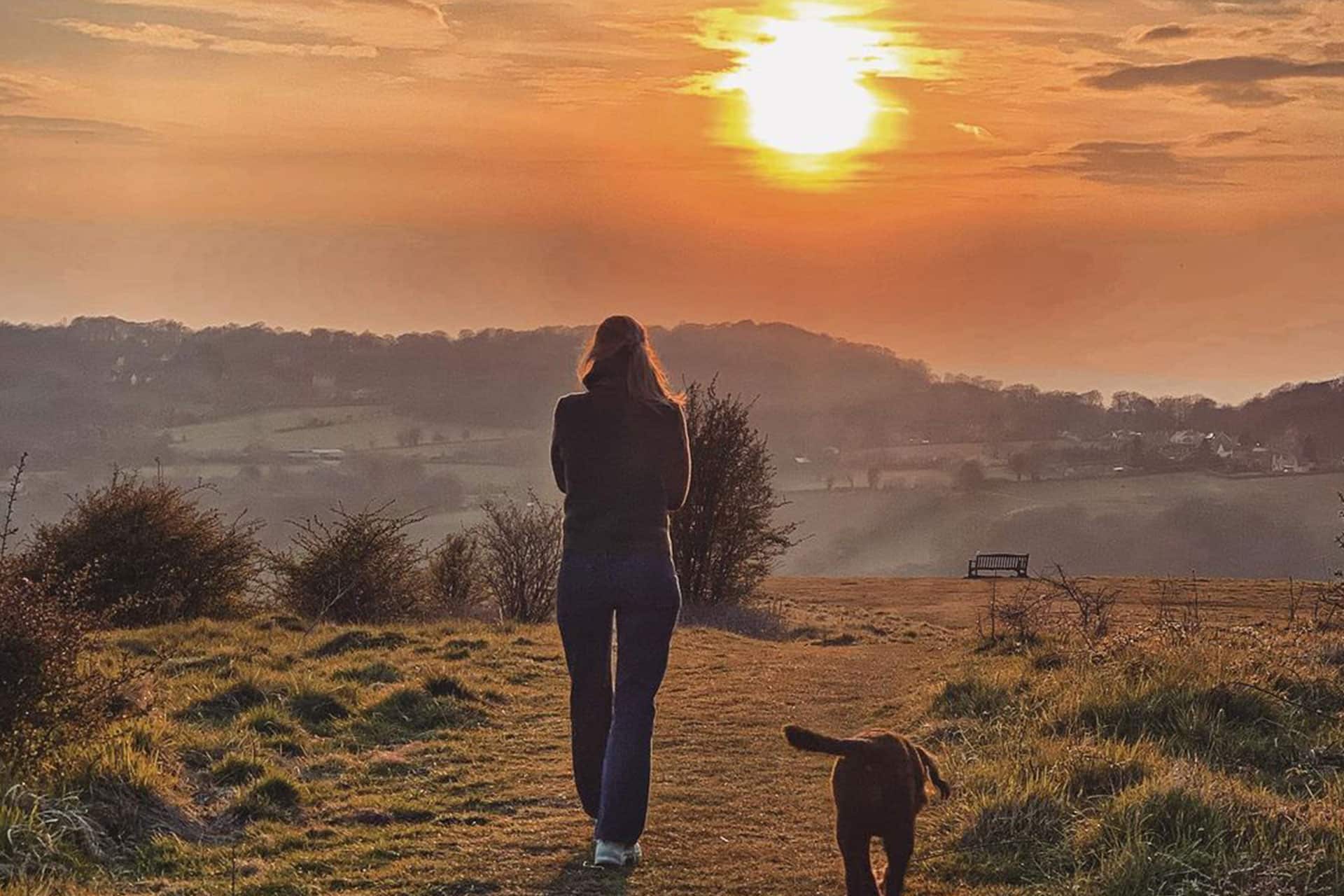
My wife and I bought a house in rural Gloucestershire, on the western edge of the Cotswolds, and I’ve felt very lucky to see the seasons change from one place without constantly being on the move. We have two Labradoodles, so a dog walk happens every day regardless of the weather, and I enjoy keeping fit – I ran the Marlow half marathon in the beautiful Chiltern hills two days ago) so either a run or a bike ride or lifting weights (or sometimes a combination of these if I’m feeling especially keen). Beyond that, it’s a mix of calls, emails, spreadsheets, reading, slowly chipping away at my book and meals with my wife!
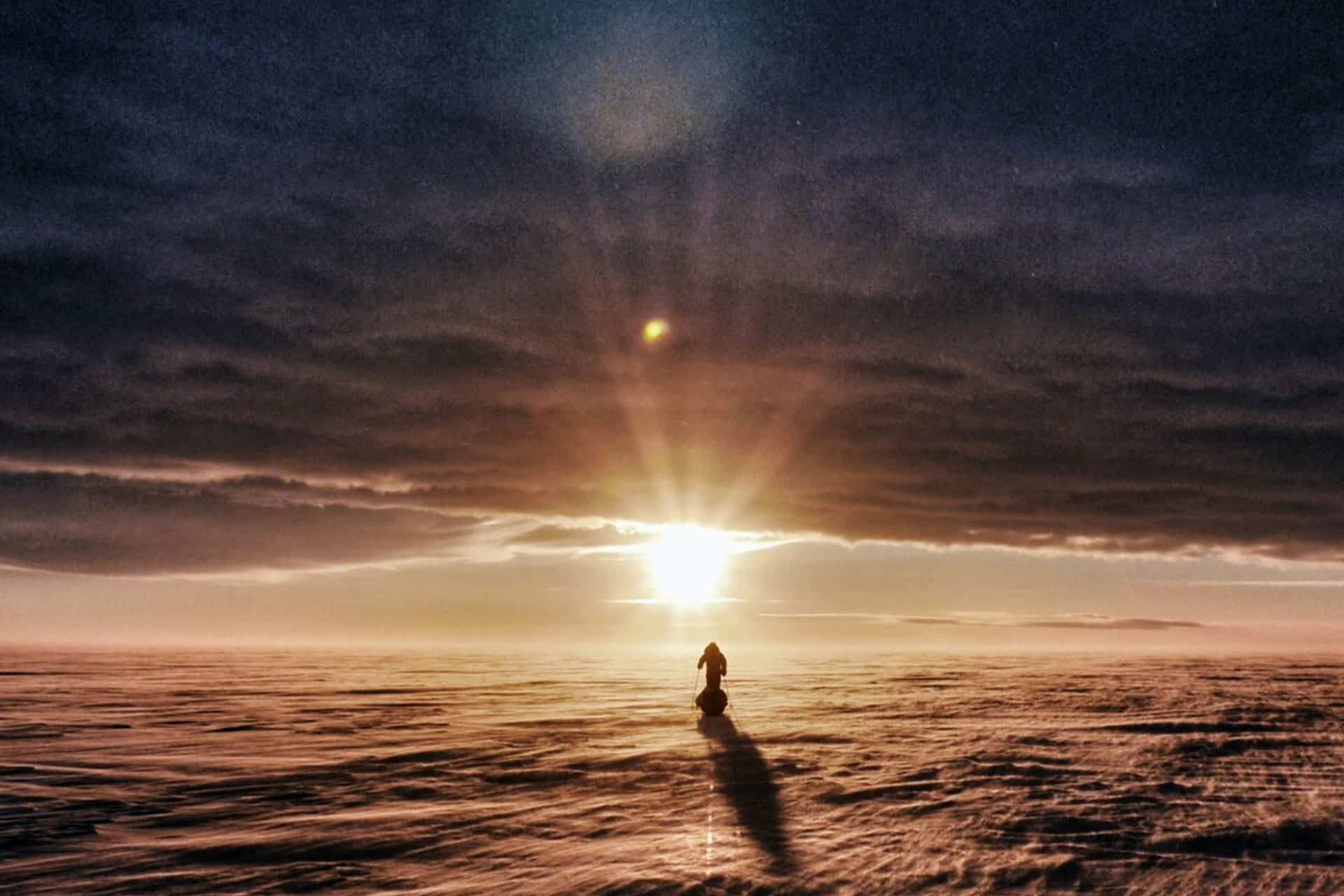
I think the biggest lesson is that challenge and discomfort are things we naturally try to avoid, yet in my experience, they’re the keys to fulfillment and contentment. If I’d been driven to the South Pole and back again by a chauffeur in a big 4×4, sipping a cappuccino along the way, I’d have none of the satisfaction I feel in having done it on foot!
The other big lesson is that self-belief and courage are vital in any endeavor, and they’re a bit like a muscle, or physical strength. To a greater or lesser degree, we’re all born with some, and we can develop it if we give it the right stimulus to grow stronger. As an adult, if you only do what you’re confident doing, or what’s comfortable, your self-belief ‘muscle’ is never given the stimulus it needs to grow stronger. Most people think they shouldn’t attempt something until they feel confident, but confidence only ever follows courage; you can’t learn to swim by reading a book about swimming, at some point you have to start, and you’re probably not going to be brilliant when you first try. Of course, preparation is useful, but at some point you have to act without certainty.
I’ve been approached by a polar bear on the Arctic Ocean, I’ve had frostbite in my toe and I’ve fallen into a crevasse in Antarctica, but the memory that just popped into my head was accidentally knocking over my teammate (and dear friend) Tarka’s dinner after we’d been sharing a tent in Antarctica for several weeks in late 2013. We spent most of that 2,900km, 108-day journey desperately hungry, despite deliberately fattening up before we left the UK. I’d lost 22kg by the time we crossed the finish line, and Tarka 25kg, so food meant an awful lot to us.
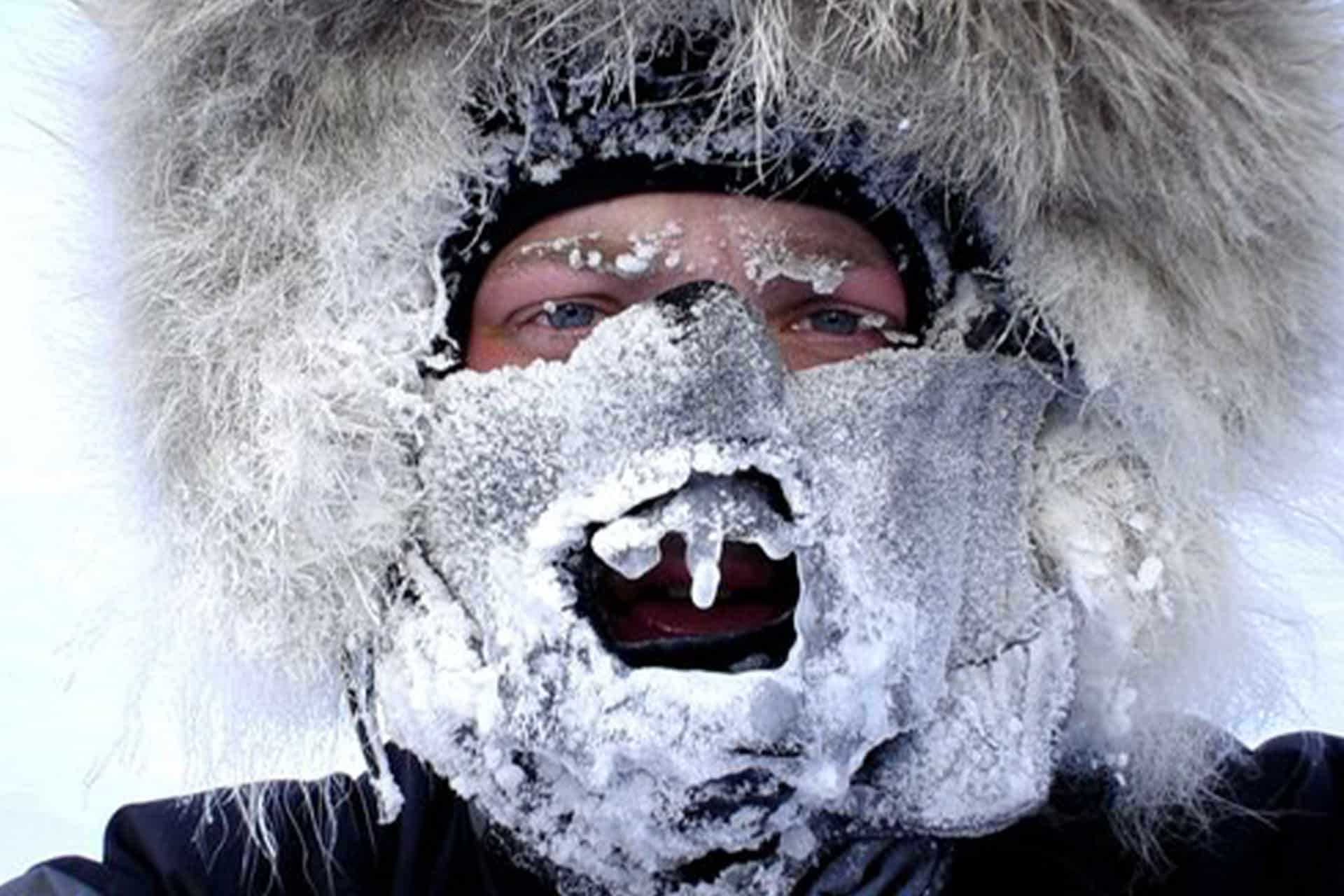
We ate our breakfasts and evening meals out of bags – the food was freeze-dried and we added hot water after melting snow on our stove in the tent. We had to wait a few minutes for the food to rehydrate, and that was when I knocked his dinner over. Thankfully it avoided his sleeping bag, and while my memories of that mortifying moment are hazy, I’m pretty sure I gave him my dinner and spent a while picking rice and chicken pieces off of his foam sleeping mat…
It’s probably a long way from most peoples’ bucket lists, but I’d love to compete in the Cape Epic mountain bike race one day (eight days in late March, roughly 700km).
Beyond that, I had one of the best meals in recent memory at La Colombe in early 2019, and Cape Town’s food and wine is world-class so my bucket list would have to involve a few good meals, and a trail run (or just a hike!) on Table Mountain to burn it all off.
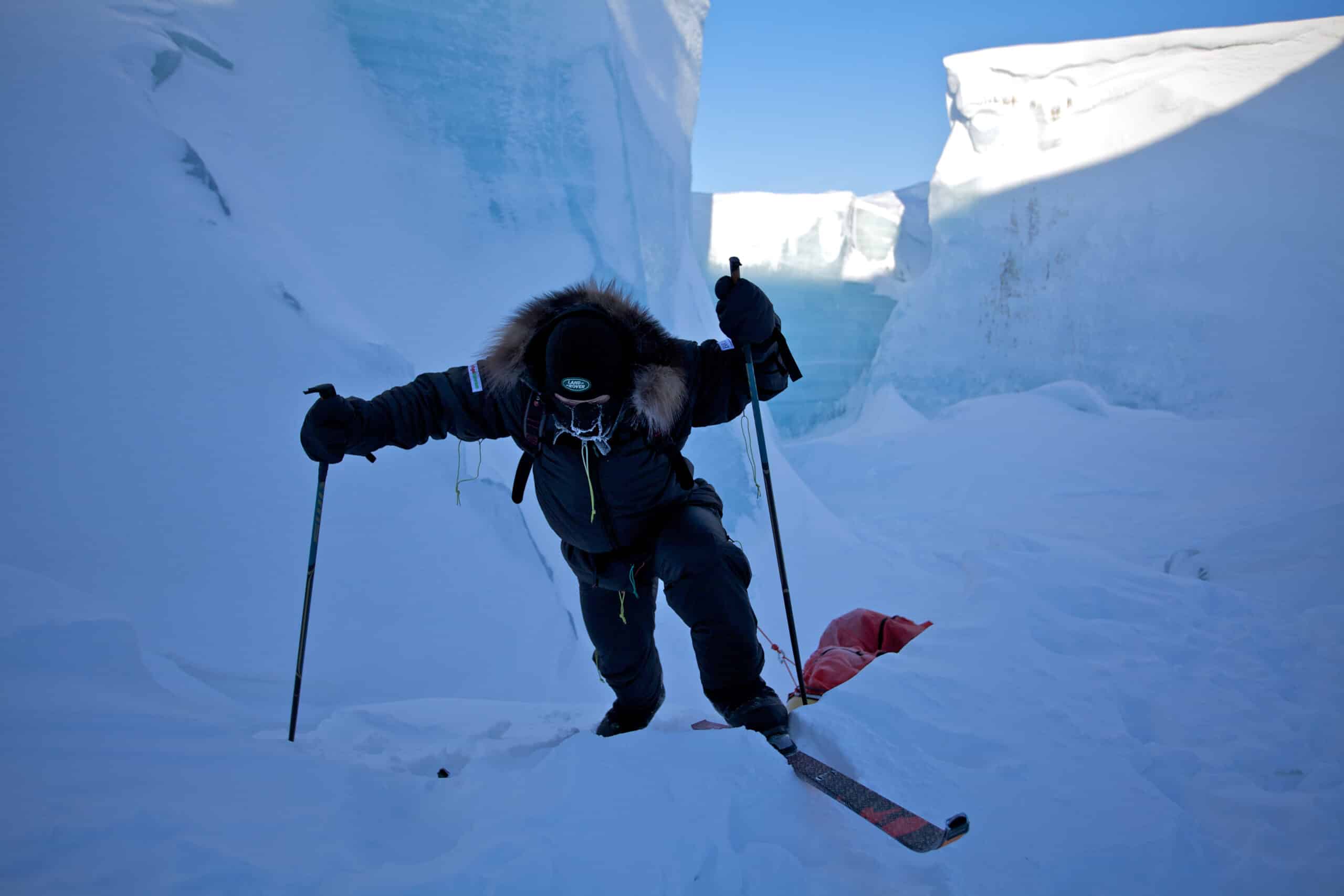
I’ve been lucky enough to have spent more time in the polar regions than many career climate scientists, so I’ve had a privileged, first-hand perspective of how things are changing. It’s most obvious to the naked eye in the high Arctic, and particularly in how quickly the pack ice of the Arctic Ocean is vanishing. It’s perhaps telling that no one has been able to ski solo to the North Pole since I did it in 2004.
I’ve made a relatively recent pivot into a whole new adventure – and not one I ever thought I’d find myself in as a professional dragger of sledges who never made it to university – and one of the hats I wear these days is as a partner in a new investment fund, working exclusively on climate-related technology, and on taking early stage businesses to China in order to scale them quickly. China is demonstrably the world’s largest polluter, yet they’re also by far the biggest investor in cleantech, so I’m excited to be working in a space with scope for such a big impact, particularly in reducing greenhouse gas emissions.
Beyond that, I’m working on a plan to take groups of young people to Antarctica, and to enable and empower them to become storytellers. I think we humans are narrative creatures, inspired by stories and not by data, and I think young people learn best from other young people. I particularly want to tell the story of the side to Antarctica that inspires me the most; it’s the largest nature reserve on Earth (the size of China and India combined, or 10% of the planet’s landmass) and it’s governed by an international treaty. When you arrive there, no one checks your passport, as nationality and borders become gloriously irrelevant in a place where the crucial thing is human collaboration.
I’ve never met a passionate environmentalist that isn’t well-traveled, so this is one of the thornier paradoxes we’re going to have to work out as a species, and particularly as a species that is hard-wired to explore, and to move away from the patch of the planet that we happened to be born on.
The ability to travel so widely – I’ve met beautiful, kind-hearted, fellow human beings from Shanghai to Santiago, and from Siberia to the South Pole – has been a fundamental part of becoming the person I am today, yet I’m also painfully aware of the fossil fuel that has been burnt in propelling me around the globe. I’ve been offsetting for years through Trees for Life (and specifically through funding a reforesting project in the Scottish Highlands) although as a friend put it, offsetting is a bit like “kicking a dog then donating to an animal welfare charity”.
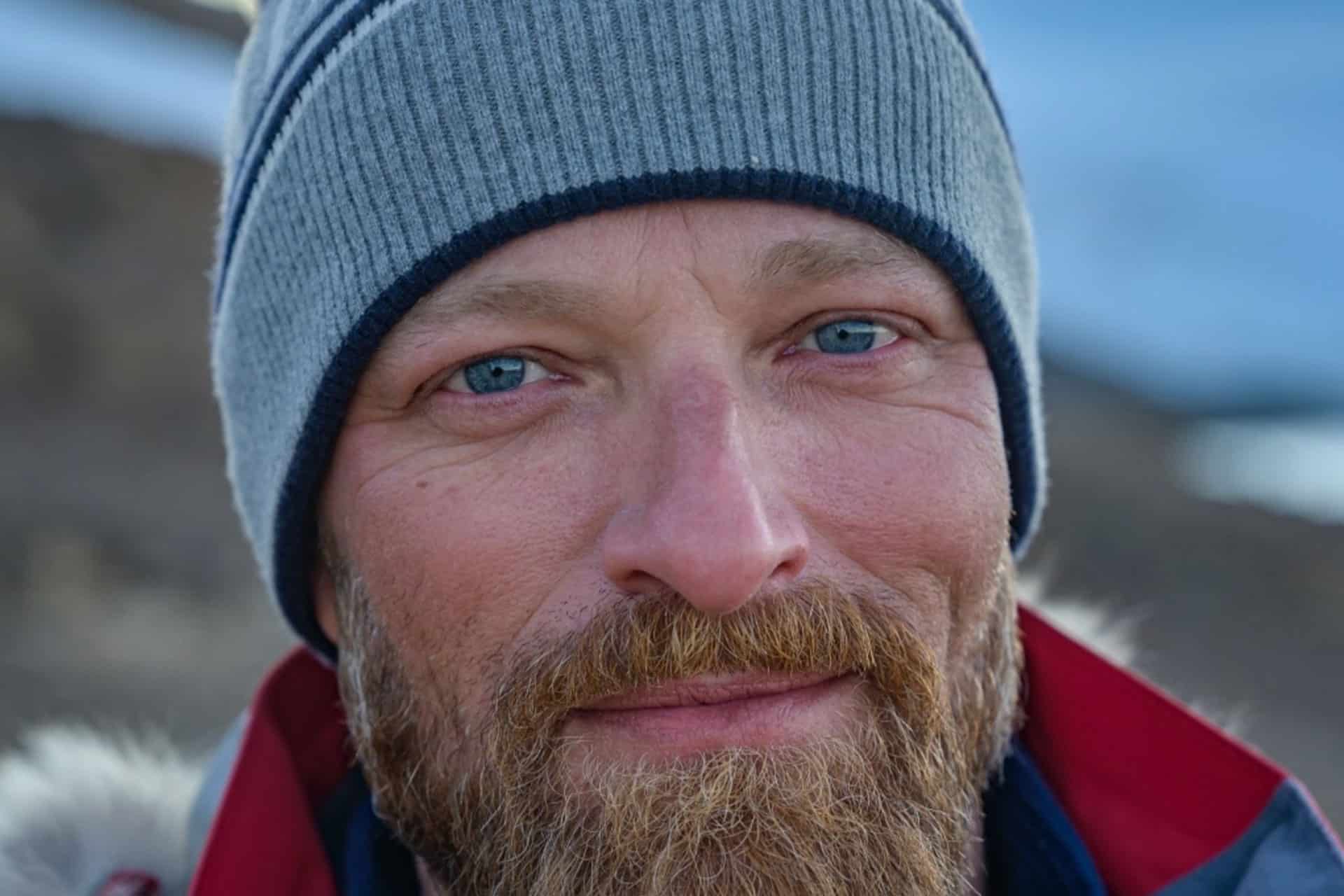
At my own individual level, I’m determined to leave the planet better than I found it in 1977, both through the work I’m doing now to accelerate the technology we need to move away from fossil fuels and to reduce the greenhouse gases in our atmosphere, and also through trying to be a positive influence on the people I meet along the way.
At an industry-wide level, responsibility is the key factor in how travel can play a role in combating climate change, but there’s of course a risk that that becomes just another buzzword. My late father was a bricklayer, and left the UK once before he died, on a package holiday to Tenerife. I have to remind myself (if, say, I don’t get my first choice of in-flight meal, or if I have to wait in line for some late-night, bleary-eyed airport transfer) that almost any form of regular international travel is still a privilege that few get to experience, and a tremendous luxury in the grand scheme of things. With that perspective and privilege comes – I think – the responsibility to use these journeys for more than just our own pleasure. As travelers, we can do our best to leave people, places and things better than we find them, and I think it’s incumbent on travel organisers or facilitators to encourage and enable their clients to do the same; to become stewards and storytellers.
I’m an optimist, so atmospheric CO2 will be 300ppm or less, and human beings will finally have realised that we all share common ancestors (there’s less genetic diversity in the entire human race than there is in chimpanzees, as just one example) and that we’re all sharing the same home, so we’ll be bickering a bit less about provincial stuff, and more focussed on creating a better collective future, both on Earth and on the planets that we’re starting to discover beyond our own solar system.
Burning fossil fuels for energy will be a thing of the past (I always remember that the street lights in London used to be lamps that burned whale oil, so this might not be all that far-fetched) and we’ll have figured out ways to harness renewable energy that enable many more people to benefit from the magic of traveling around the planet and witnessing the magic of the natural world at first hand.
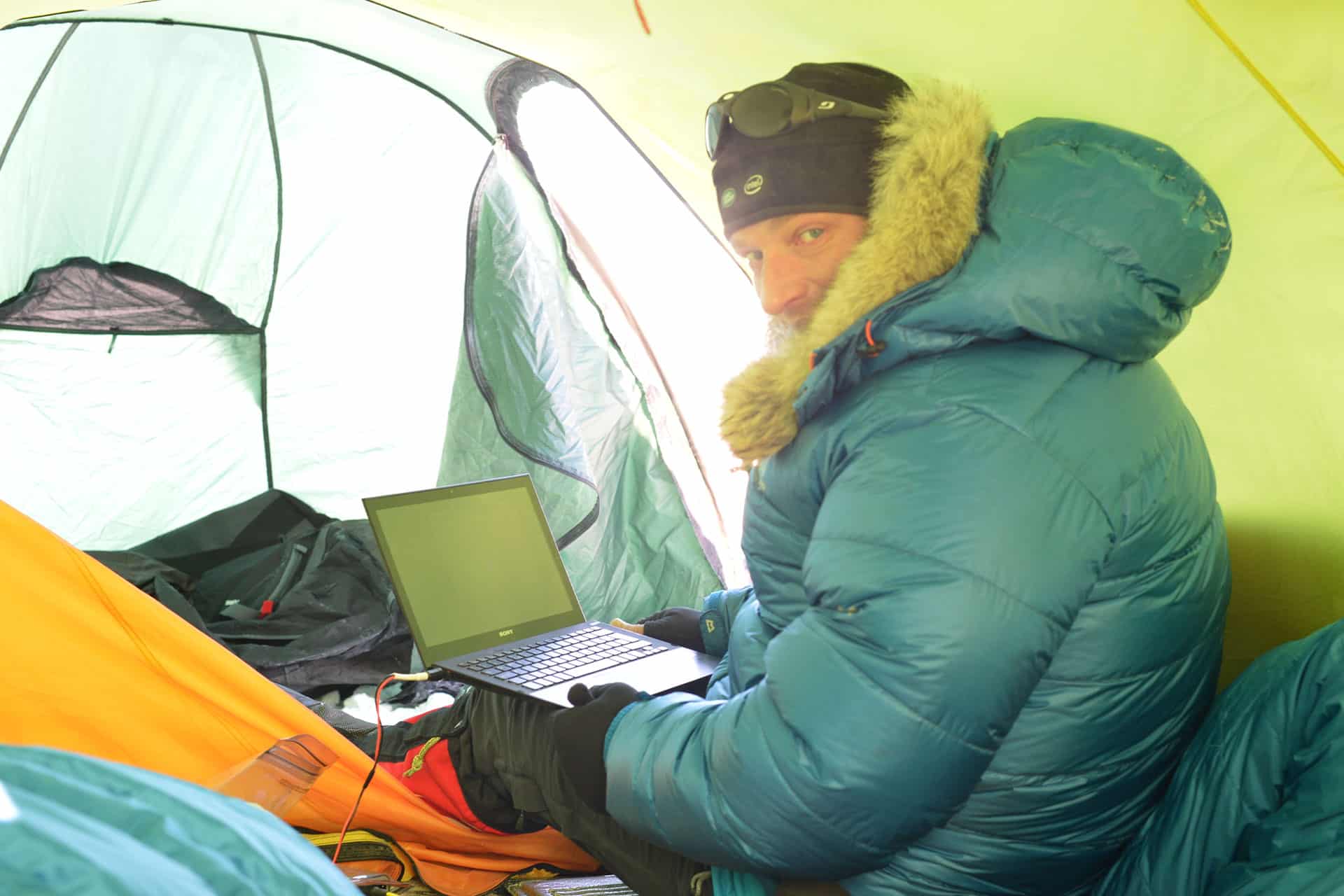
Having said I’m an optimist, I’m not convinced I’d survive long in Antarctica with only three items! Being sensible I’d say a tent, a stove and a satellite phone (my sat phone has a built-in GPS, which feels like cheating!) but if it’s a one-way trip then I’d say a good bottle of whisky, a good cigar, and a photo of my wife. Although of course then I’d have nothing to light the cigar with…
If this has inspired you to experience the wild, desolated region of Antarctica for yourself, we can make it happen! Get in touch with a LuxVenture® Designer today and start planning.
Keep an eye out for more conversations and inspiring stories from bold achievers from both in and out of the travel industry with Ker & Downey® Africa’s Fireside Chats. There’s plenty more in store to whet your adventure appetite!
Head office:
7 Bree Street, 6th Floor, Touchstone House, Cape Town, South Africa
+27 (0)21 201 2484
[email protected]
United Kingdom: Sportsman Farm, St Michaels, Tenterden, Kent
Ker & Downey® Africa is compliant with COVID-19 Industry Protocols.


Head office: 7 Bree Street, 6th Floor, Touchstone House, Cape Town, South Africa
+27 (0)21 201 2484
[email protected]
United Kingdom: Sportsman Farm, St Michaels, Tenterden, Kent
Ker & Downey® Africa is compliant with COVID-19 Industry Protocols.